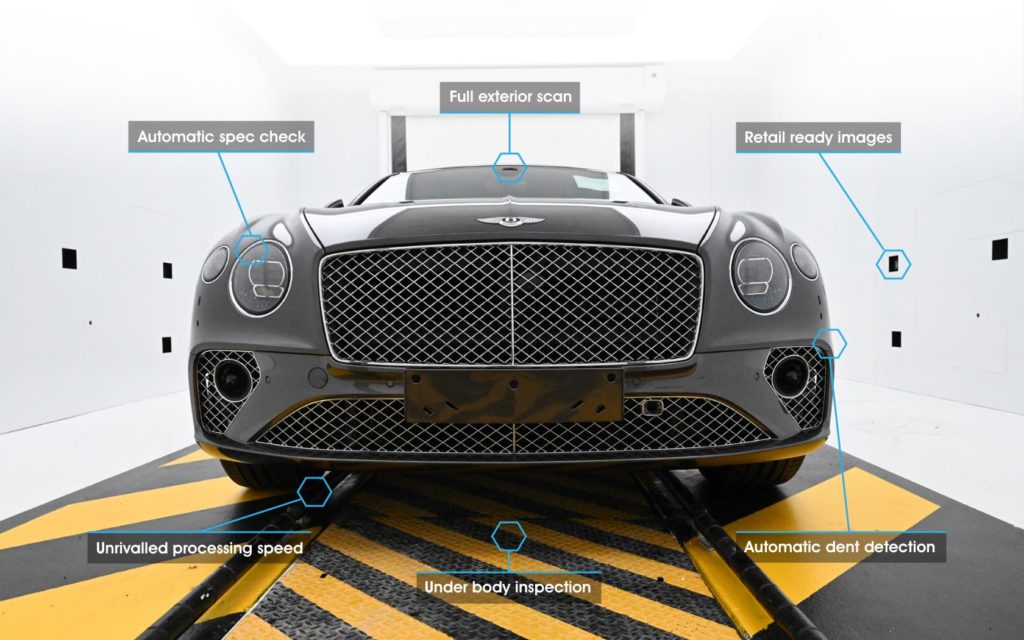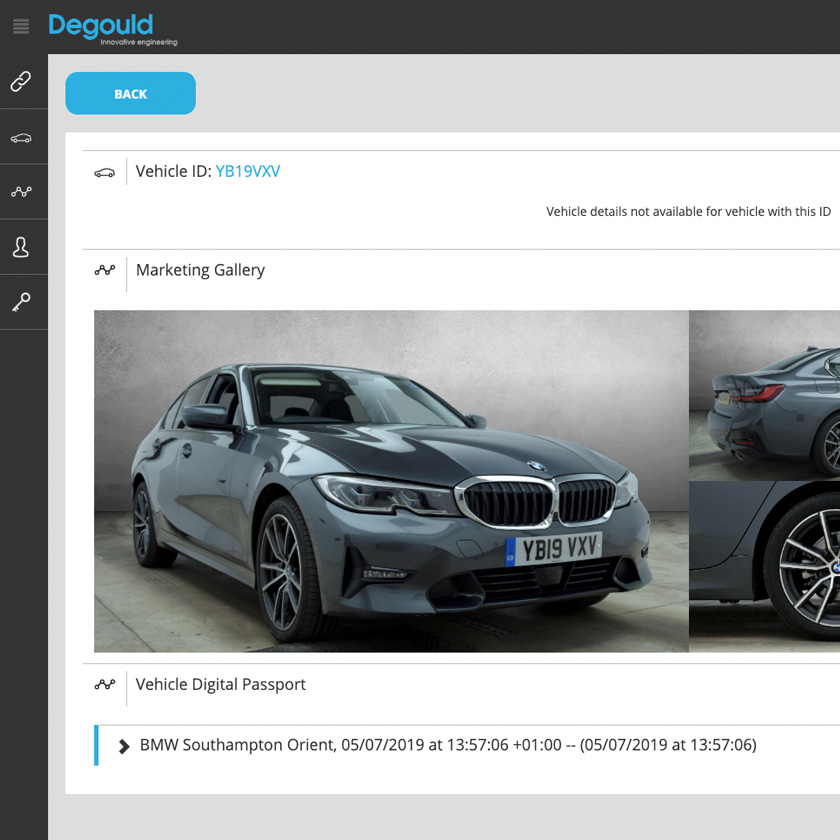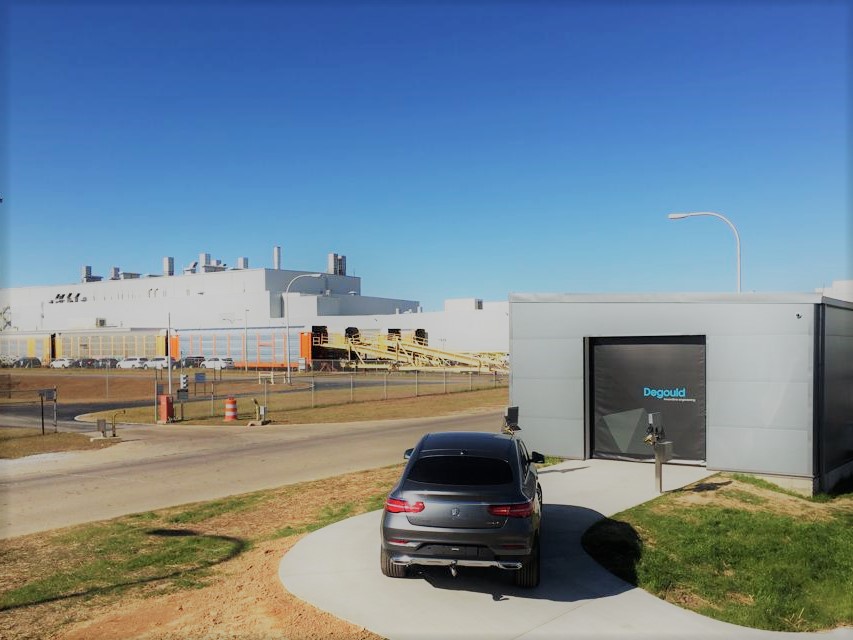Part II: Damage control – how tech can assist vehicle inspection
5th September 2021
The introduction of more Artificial intelligence (AI) capabilities in 2019 has moved the system from passively documenting vehicle conditions for retrospective review to actively performing digital inspections
Extract from the Automotive Logistics: Finished Vehicle Logistics Magazine
Part II
Words by Victoria Johns

Multiple inspection standards
Despite its apparent limitations, manual inspection is still DeGould’s biggest competition and Jones says it has been a challenge to convince companies they should move to automated image technology. “We had to educate the market that this was the sort of technology they should be employing,” explains Jones. “Now people accept that, but in our early days’ people thought it was a crazy conceptual idea.
According to Jones, the company has made a lot of progress in the UK market and has gained traction with OEMs manufacturing in the country. While some already have a DeGould system, others are in the process of installing one.
However, despite the efforts of organisations like ECG, Jones suggests it has been difficult to create an inspection standard because many brands have their own preferences.

2-10% Average damage rate for finished vehicles, with an average cost per claim of more than £250 ($328). This is often much higher for premium brands
“Many countries and markets also have their own interpretation of the standards, dependent on their environment, labour and culture,” he explains. “Many use the Automotive Industry Action Group codes, for example, but our app only requires the identification of the damage in relation to the actual vehicle being inspected. We have vector-mapped all the parts on each vehicle, so we can back-code in the preferred codes for each brand.”
This method is used worldwide, usually at retailers reporting damages on receipt. “They scan the vehicle identification number with a mobile device and then mark on the images where damage has been found,” Jones explains. “This is then automatically mapped against any connected Auto-scan data, increasing visibility for OEMs and suppliers and streamlining claims handling.
“As each partner we work with has their own inspection standard that covers damage, dents and scratches, we incorporate this into our AI algorithms when automatically detecting incidence on a vehicle. A powerful AI system requires the best data.”

Bentley’s assembly operation at Crewe, UK
DeGould has been working with premium carmaker Bentley since 2018. The OEM has an Auto-scan booth installed at its plant in Crewe, UK, where all finished vehicles are processed at the end of the production line.
Finished vehicle distribution comes with an added challenge for the OEM due to the size and width of its vehicles. Jones says DeGould’s system allows the team to validate any warranty claim that may arise at dealer or customer level and establish whether the factory was at fault and if so, to take preventive action.
“It assists Bentley to determine exactly whether any damage or defect was present before each and every vehicle they manufacture leaves the plant, or whether the damage was caused in the supply chain,” he says.
As well as the Auto-scan booths, Bentley is also using the DeGould vector-mapping app, which automatically notifies global retailers as vehicles pass through additional Auto-scans at ports in the supply chain.
“We are privileged to be associated with such an iconic British brand,” says Jones. “As we move into automatic notifications for dents, damages and non-conformances in real-time, we are looking to provide additional quality measures and solutions further up the value stream on the Bentley assembly line.”
These systems will include quality gates throughout the production process, using different applications of DeGould’s technology. “The most thorough checks will remain at Checkpoint 8 [the final quality gate], where our automatic digital inspection takes place, giving real-time notifications at the handover point from plant to logistics,” explains Jones.
Paul Allen, Bentley’s vehicle distribution manager, comments: “Our cars pass through an Auto-scan as they leave Crewe, and again at the port of export and the port of entry. This gives us a photographic digital stamp of the condition of that car, complete digital vector mapping throughout the entire supply chain.
“If an incident does happen along the journey, we are able to pinpoint where that incident happened, what kind of damage it was, and then we can do some root cause analysis, allowing us to identify any trends before a car reaches an importer.”
Future improvement
DeGould believes the industry can expect an improvement in the quality and conformity of vehicles entering the supply chain, as well as issues being picked up at handover points and corrected. “Vehicles can now be delivered and stored with fewer handles [handling points], and far less delay,” he states. “We can expect an uplift in quality and a reduction in damage, but also a greater sense of acceptance when incidents do happen, as the evidence system takes away the emotion and argument. This leads to bottom-line savings at the plant and greatly assists in the end customers receiving their vehicles in the correct condition, to the correct specification and on time,” he adds.
The introduction of more AI capabilities in 2019 has moved the system from passively documenting vehicle conditions for retrospective review to actively performing digital inspections. “Rather than wait for someone to make a claim and say if it was there or not, now we can let our clients know when the car passes through the system if our AI thinks that the car is damaged at that point in time or not. This happens live on the system and can notify the operative or the customer via our secure, cloud-based software,” explains Jones.
The company anticipates strong growth in the US market, where it has recently secured a multi-million-pound investment. Its strategy will also extend further into the vehicle ownership cycle. “We are fulfilling requests by vehicle remarketing operators as our system can provide retail-ready vehicle images and damage detection for used cars. This is a perfect solution for auctions and de-fleeting centres,” explains Jones.
The technology also has applications in other sectors like car rental and airport parking solutions. The company recently completed an installation at Bristol Airport, UK, which now captures images as customers arrive at the valet centre in the car park.
“In the previous two years of rapid growth we have processed over 2m vehicles and we expect to at least double that in the coming year, based on current orders,” says Jones. “With technology, you never know what is around the corner, but we never see a product as finished or fully developed, so we’ll keep listening to our customers and keep meeting their demands.”
Read the full Automotive Logistics article here
To read bout Degould’s 2019 journey and plans for 2020 click here